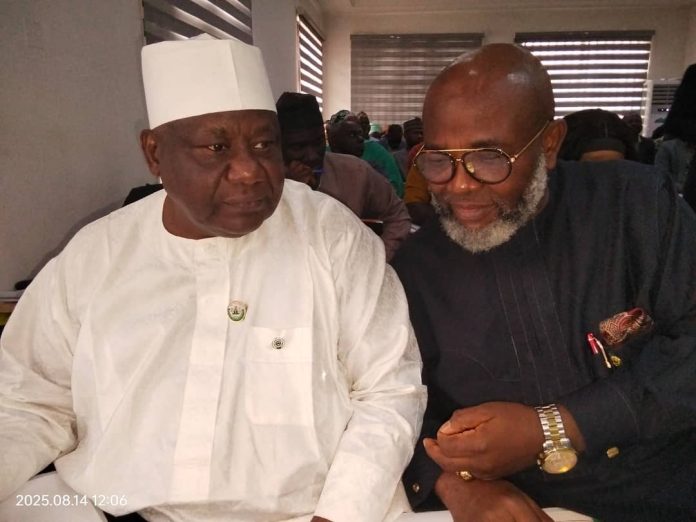The Executive Chairman of the Fiscal Responsibility Commission (FRC), Victor Muruako, has called for the swift validation of the newly developed Fiscal Responsibility Code of Conduct, describing it as an indispensable tool for enforcing the Fiscal Responsibility Act (FRA) 2007.
Speaking at a high-level stakeholders’ meeting in Abuja, Muruako warmly welcomed participants from Ministries, Departments, and Agencies (MDAs), as well as development partners, civil society organizations, and virtual attendees. He stressed that the Code of Conduct would serve as a “vital toolkit” to close existing enforcement gaps in fiscal governance, especially where the Act prescribes no clear sanctions for violations.
“We regard this document as a very vital and indispensable toolkit for the effective enforcement of the spirit and letters of the Fiscal Responsibility Act,” Muruako said, acknowledging the support of partners including the European Union, the Rule of Law and Anti-Corruption (RoLAC) Programme, International IDEA, and the Centre for Social Justice (CSJ).
He commended CSJ Lead Director Eze Onyekpere, Esq., for his “zealous commitment” to strengthening fiscal discipline at both national and sub-national levels.
Highlighting the Commission’s four core mandates—prudent resource management, macroeconomic stability, accountability, and transparency, Muruako noted that the FRC also functions as Nigeria’s fiscal council, in line with international best practices recognized by the World Bank, OECD, and IMF.
The proposed Fiscal Responsibility Code of Conduct aims to: Reduce risks in public financial management, including budget fraud and corruption;
Enhance accountability and transparency in fiscal decision-making;
Provide ethical guidelines balancing efficiency with social responsibility and
Foster fiscal discipline to ensure borrowing is limited to capital projects and human development.
Muruako lamented the absence of punitive measures in certain sections of the FRA 2007, which he said has prolonged a “regime of impunity,” and reaffirmed the Commission’s readiness to work with partners to ensure effective implementation of the Code.
In his presentation, CSJ’s Eze Onyekpere argued that implementing even half of the Code’s provisions could significantly transform Nigeria’s fiscal landscape. He criticized banks and state governments for engaging in borrowing practices contrary to the FRA 2007.
Delivering the keynote address, Director-General of the Bureau for Public Service Reform, Dr. Dasuki Arabi, praised the FRC’s drive to promote transparency and prudence in fiscal governance.
Also speaking, representatives of the Economic and Financial Crimes Commission (EFCC), Ibrahim Shaliza, Director of Fraud Risk Assessment and Control at the EFCC, and the Chief State Counsel, Federal Ministry of Justice, Imarha Oghenenyerowo Reuben of the office of the Attorney-General of the Federation, the Special Adviser and representative of the permanent Secretary, Federal Ministry of Financial, Peter Owuru, pledged full support for the Commission’s mandate. reaffirmed the agency’s readiness to collaborate in enforcing fiscal responsibility across government institutions.


